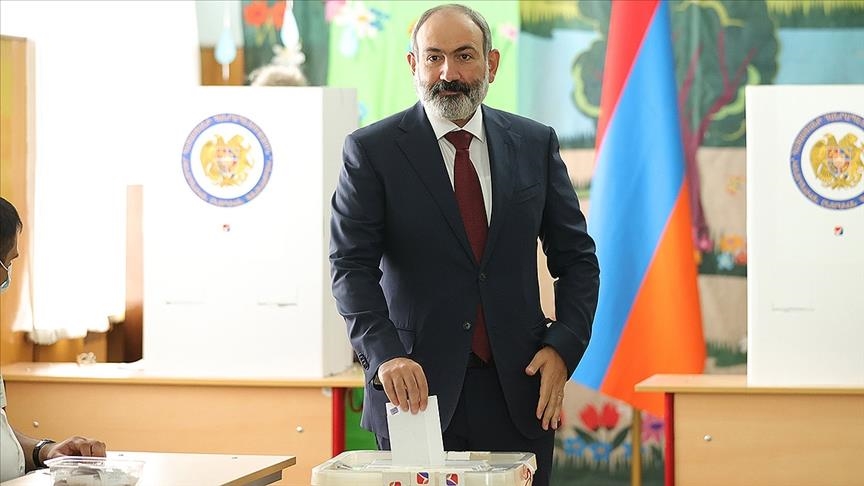Hassan Beheshtipour stated that the relations between Russia and Armenia should be considered separately from the relations of that country with Pashinyan himself, the current prime minister, and his government. He noted that Russia is unhappy with Mr. Pashinyan’s performance, and there are serious criticisms regarding his approach to the European Union first and then to the United States. But the problem is that the relations between those two countries have very broad and important political, economic, military, security, and cultural aspects. At the same time, the positions of Russian officials, from Putin to the prime minister and foreign minister of that country, also show that they still count on Armenia as a strategic ally.
He continued: Since they do not accept the performance of Pashinyan’s government, they naturally don’t take the actions that he expects in support of his government, but it does not mean that Russia has abandoned Armenia in general and ignores all the important strategic relations it has had with Armenia in the past 30 years because of Pashinyan.
Emphasizing that Armenia is not anti-Russia but a critic of that country, the expert on Russia and the Caucasus affairs said: Yerevan expected Russia to support Armenia during the Karabakh war and the mass security forces it used in April 2022 in Kazakhstan. to be used in Armenia as well; but Russia said that according to international documents, Karabakh is a part of the territory of the Republic of Azerbaijan and it cannot have the same behavior it had towards Kazakhstan in relation to the tension between Armenia and the Republic of Azerbaijan.
Recalling that Russia has good relations with Armenia and Azerbaijan and does not want to involve itself in a conflict because of the Western-oriented government of Armenia, Beheshtipour said: Armenia believes that Moscow not only does not put any pressure on Baku’s supporters, including Ankara, it has close relations with it. Although Pashinyan clearly stated that in the past 30 years, Armenia has not benefited from the policy of Russification, it should be kept in mind that during the entire time, they were able to occupy seven regions of Azerbaijan and keep Karabakh, they enjoyed the support of Russia.
Saying that now there is a gap between the ruling government in Armenia and Russia, he considered the imposition of the most severe international sanctions against Russia and the country’s conflict in the war with Ukraine as a factor in the weakening of Russia’s role in the Caucasus. He said: In the current situation, all fields which connect Armenia and Russia are not broken. Aiming to show Baku that it is not alone, Armenia sought refuge in the US and held a joint military exercise with that country. Also, with the strengthening of the Armenian lobby in France, we see France’s strong support for Armenia. Although Pashinyan has preferred to establish a balance in his relations with the West and Russia in the current situation, he will never put all his eggs in the West’s basket.
The analyst of Russia and the Caucasus affairs, while emphasizing that the situation in Armenia will not be like that of Ukraine and that Russia does not feel threatened by Armenia’s proximity to the West, like Ukraine, explained: Despite the long common borders between Russia and Ukraine, Russia’s security is the country is tied to the security of that country and for years it has been a buffer zone with the West, but Armenia, which is much smaller than Ukraine and has a population of 2 million, shares no border with Russia. Therefore, the conditions of Ukraine and Armenia are different from each other in terms of geopolitics, geostrategic, and even geo-economics terms.
Beheshtipour emphasized that Armenia is definitely a very important base for Russia in the South Caucasus, and it will definitely be sensitive to NATO’s influence there. Still, Russia’s influence in Armenia is much broader than the country’s influence in Ukraine.
He stated that Armenia and Ukraine have suffered from duality in relation to the West and Russia. He said: It seems that the tensions between Moscow and Yerevan are not long-term. Russia is waiting for the changes it expects to be made in the next Armenian elections, and a new team comes to power in the management of that country, which, if it does not have a close relationship with Russia, at least it will not be a supporter of the West. Now, Russia is trying to work with Pashinyan’s opposition factions in Armenia.
About the efforts of European countries and the US to increase their role and influence in Armenia during Pashinyan’s period of power and the possibility of increased pressure against Russia in the long term, the expert on Russia and the Caucasus affairs noted: Russia and the West cannot fully express their will in Armenia. The competition between the United States and the European Union with Russia existed before. Still, since 2018, it has become more sensitive, and in the future, we will see efforts to penetrate more in Armenia.
Beheshtipour said: Definitely, the West cannot easily put aside Russia in Armenia, and Russia is not passive in the region either. Still, Russia’s influence in Armenia is more than that of the West. Still, the challenges between the West and Russia continue in Armenia, and neither of the parties can eliminate the other.










0 Comments